第21章
"My own country," she said, "has suffered for so many centuries from such terrible oppression that the reaction was bound, in its first stages, to produce nothing but chaos. Automatically, all that seems to you unreasonable, wicked even, in a way, horrible - will in the course of time disappear. Russia will find herself.
In twenty years' time her democracy will have solved the great problem, and Russia be the foremost republic of the world."
"Meanwhile," he remarked, "she is letting us down pretty badly."
"But you are selfish, you English!" she exclaimed. "You see one of the greatest nations in the world going through its hour of agony, and you think nothing but how you yourselves will be affected! Every thinking person in Russia regrets that this thing should have come to pass at such a time. Yet it is best for you English to look the truth in the face. It wasn't the Russian people who were pledged to you, with whom you were bound in alliance. It was that accursed trick all European politicians have of making secret treaties and secret understandings, building up buffer States, trying to whittle away a piece of the map for yourselves, trying all the time to be dishonest under the shadow of what is called diplomacy. That is what brought the war about.
It was never the will of the people. It was the Hohenzollerns and the Romanoffs, the firebrands of the French Cabinet, and your own clumsy, thick-headed efforts to get the best of everybody and yet keep your Nonconformist conscience. The people did not make this war, but it is the people who are going to end it."
They walked in silence for some minutes, he apparently pondering over her last words, she with the cloud passing from her face as, with her head a little thrown back and her eyes half-closed, she sniffed the strong, salty air with an almost voluptuous expression of content. She was perfectly dressed for the country, from her square-toed shoes, which still seemed to maintain some distinction of shape, the perfectly tailored coat and skirt, to the smart little felt hat with its single quill. She walked with the free grace of an athlete, unembarrassed with the difficulties of the way or the gusts which swept across the marshy places, yet not even the strengthening breeze, which as they reached the sea line became almost a gale, seemed to have power to bring even the faintest flush of colour to her cheeks. They reached the long headland and stood looking out at the sea before she spoke again.
"You were very kind to me last night, Mr. Orden," she said, a little abruptly.
"I paid a debt," he reminded her.
"I suppose there is something in that," she admitted. "I really believe that that exceedingly unpleasant person with whom I was brought into temporary association would have killed you if I had allowed it."
"I am inclined to agree with you," he assented. "I saw him very hazily, but a more criminal type of countenance I never beheld."
"So that we are quits," she ventured.
"With a little debt on my side still to be paid."
"Well, there is no telling what demands I may make upon our acquaintance."
"Acquaintance?" he protested.
"Would you like to call it friendship?"
"A very short time ago;" he said deliberately, "even friendship would not have satisfied me."
"And now?"
"I dislike mysteries."
"Poor me!" she sighed. "However, you can rid yourself of the shadow of one as soon as you like after luncheon. It would be quite safe now, I think, for me to take back that packet."
"Yes," he assented slowly, "I suppose that it would."
She looked up into his face. Something that she saw there brought her own delicate eyebrows together in a slight frown.
"You will give it me after lunch?" she proposed.
"I think not," was the quiet reply.
"You were only entrusted with it for a time," she reminded him, with ominous calm. "It belongs to me."
"A document received in this surreptitious fashion," he pronounced, "is presumably a treasonable document. I have no intention of returning it to you."